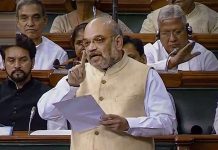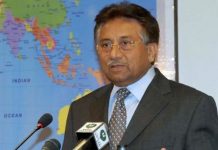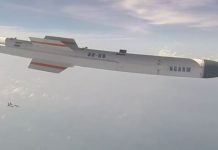With NC and PDP deciding to contest the LS polls independently, the INDIA bloc’s unity bid has drawn a blank in the Valley. Meanwhile, the polls are set to decide the fates of valley heavyweights such as Omar Abdullah, Mehbooba Mufti and Ghulam Nabi Azad. A report by Riyaz Wani
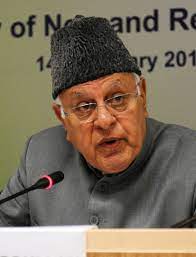
As the election campaign for Lok Sabha heats up in Jammu and Kashmir, the opposition parties are finding it increasingly difficult to retain any semblance of unity. The party interests have forced political outfits to go their separate ways. So much so that neither INDIA Alliance nor People’s Alliance for Gupkar Declaration (PAGD), originally formed to advocate for the restoration of Article 370, have survived.
To begin with, the National Conference (NC) decided to contest the forthcoming Lok Sabha elections independently. In the last parliamentary polls, the NC had won the three seats from Kashmir Valley while the two seats in Jammu division and the one in Ladakh in the then undivided J&K were won by the BJP. The NC refused to part with its Valley seats and decided to support Congress in two seats in Jammu, now that Ladakh is a separate union territory.
In response to the NC’s decision, the PDP has also decided to contest the three Valley seats. This will split the votes among the three parties. Votes will further fragment with the other non-allied parties like People’s Conference, Apni Party and Democratic Azad Party – seen as close to the BJP – also throwing their hat in the ring. This will be a certain advantage for the BJP which will fight all the six seats in J&K and Ladakh.
Incidentally, the NC and the PDP are also part of the Peoples Alliance for Gupkar Declaration (PAGD). The PAGD, formed with an objective of ensuring restoration of the special status of Jammu and Kashmir, faces an internal challenge as its constituent members which also include CPIM and Awami National Conference grapple with divergent interests and ambitions. But ever since its formation in 2020, the PAGD has become a distant memory, with the constituent parties not even meeting, let alone talking about the restoration of Article 370.
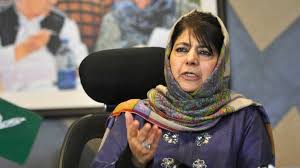
As things stand, a significant opinion in the NC and the PDP has grown increasingly skeptical about their alliance and for very different reasons: the NC has come to see the PAGD as detrimental to its traditional standing as the largest J&K party and the PDP, in a sense, reciprocates the feeling. In the process, both the parties have gone slow on the demand for restoration of the former state’s autonomy as the centre turns up heat.
Though the parties again banded together when they joined the INDIA Alliance, they have since drifted apart. One of the factors for this is that J&K has too less a number of seats to share. However, the NC has expressed its willingness to go for seat-sharing on the three seats held by the BJP candidates, including the one in Ladakh. But in those seats, the Congress has been a bigger player than the PDP and so, a little consolation to the latter. The PDP has now decided to contest not just from the three seats in the Valley but also from the two seats in Jammu. This will certainly be advantageous to BJP, more so in the two seats of Jammu where participation of the PDP and the other parties would once again split the anti-BJP votes.
No wave in favour of any party
As things stand, there is no visible wave of support in favour of any party in the union territory, including the BJP. The political activity has generally been suppressed since the revocation of Article 370 in August 2019. Other than the BJP, no other party has found it safe to peddle its politics, nor have people been allowed to freely express their opinion. This has had a chilling effect.
This has created a complicated situation. While the consequent discontent should go against the BJP in the union territory, particularly in its stronghold in Jammu, the party is anticipated to do well. This despite the fact that Jammu has experienced deep unease about the turn of events since the withdrawal of Article 370. Jammu has also feared loss of jobs, land and identity. People apprehend that the militancy in the Valley will persuade all eligible outsiders to settle in Jammu. People from outside are expected to find Jammu safer and culturally favourable. Besides, the new residency law has already granted citizenship to West Pakistan refugees, Gurkhas and Valmikis, who live in Jammu.
In fact, other than the BJP, all other parties, including Congress, in Jammu have expressed their unhappiness with the existing situation. It remains to be seen whether any of this discontent would impact the prospects of the BJP.
Alienation in Ladakh
The union territory carved out of J&K is now more alienated than ever before. Ladakh has experienced significant growth in its tourism sector, attracting an increasing number of visitors. This has played a big role in bolstering the local economy. However, the region’s transition to union territory status in August 2019 has increasingly confronted Ladakhis with challenges they had not foreseen. While initially celebrating this change, they now worry about the potential influx of outsiders without adequate constitutional safeguards against the settlement of non-local residents. With a small population of around 274,000 people, Ladakhis fear being overwhelmed and losing control over their economic activities.
The situation has come to a pass where the renowned climate activist Sonam Wangchuk has been forced to undertake a hunger strike for 21 days. His movement for safeguarding Ladakh’s rights continues. Would this impact the electoral outcome in Ladakh? Normally, it should. The BJP had won the parliamentary seat from the region in 2019.
Heavyweights in fray
Other than the BJP whose star like elsewhere in the country remains in the ascendent in J&K, the ongoing Lok Sabha election will decide the fates of the heavyweight politicians such as Dr Farooq Abdullah and his son Omar Abdullah, Mehbooba Mufti and of course former top Congress politician Ghulam Nabi Azad. Azad is pitted against Mehbooba in South Kashmir’s Anantnag parliamentary constituency. After his exit from the Congress, Azad floated a new outfit DPAP in 2022. But it hasn’t so far found enough traction in the UT and Azad himself, once a high-flying politician at the national level has, more or less, receded into oblivion. The ongoing poll is thus a chance for him to resurrect his political career by winning his seat. Should Azad lose, he will further retreat into the shadows. More so, with the prospect of Assembly polls in the UT looking uncertain despite the Supreme Court deadline that the exercise be held before September this year.
Ditto for Mehbooba who needs a victory to shore up her party which has suffered large-scale desertions in recent years. And for Abdullahs, it is a fight to demonstrate that their party remains the pre-eminent political force in Jammu and Kashmir apart from the BJP which has dominated the scene over the past ten years, particularly in Jammu division. But for now, all we can do is keep our fingers crossed.








